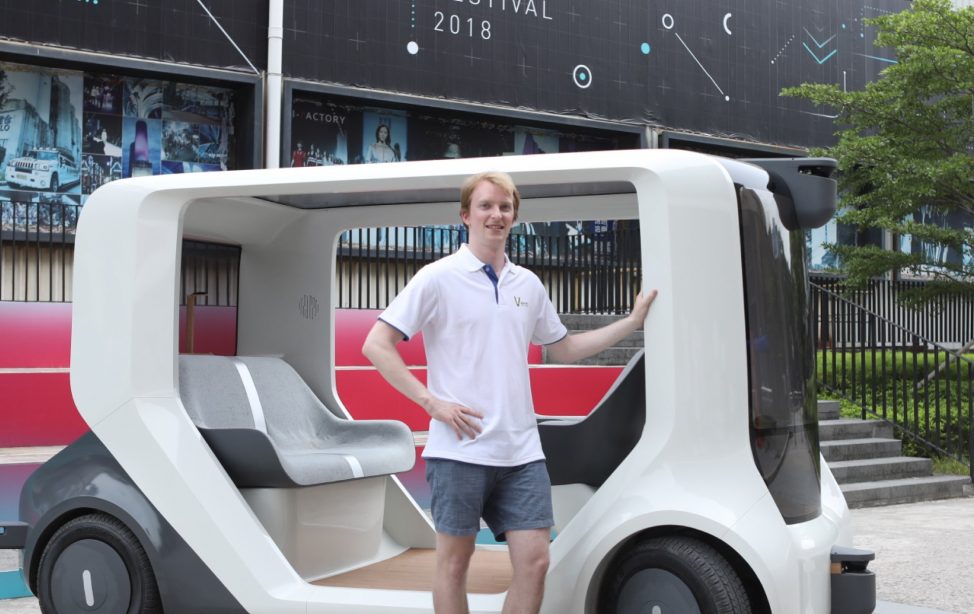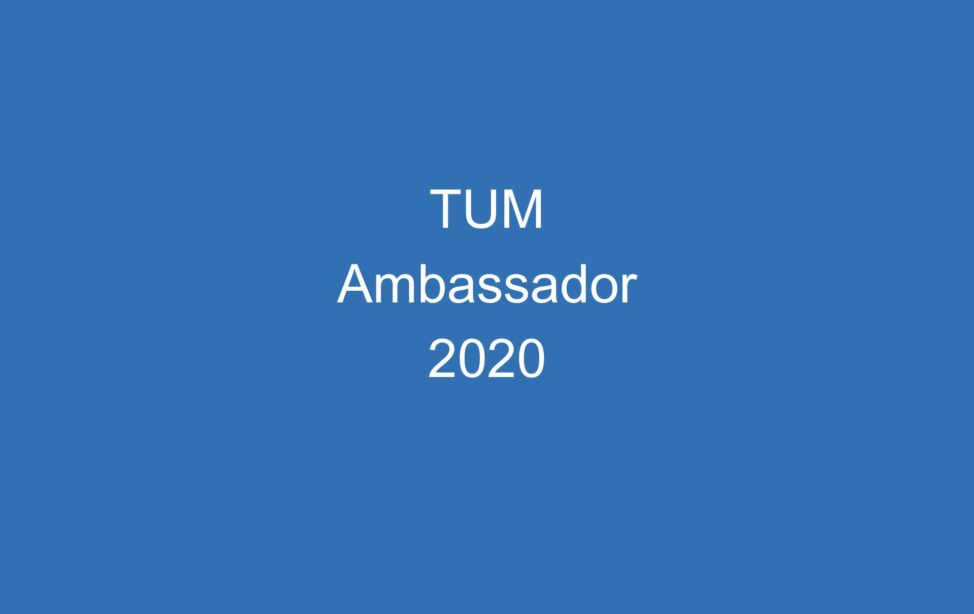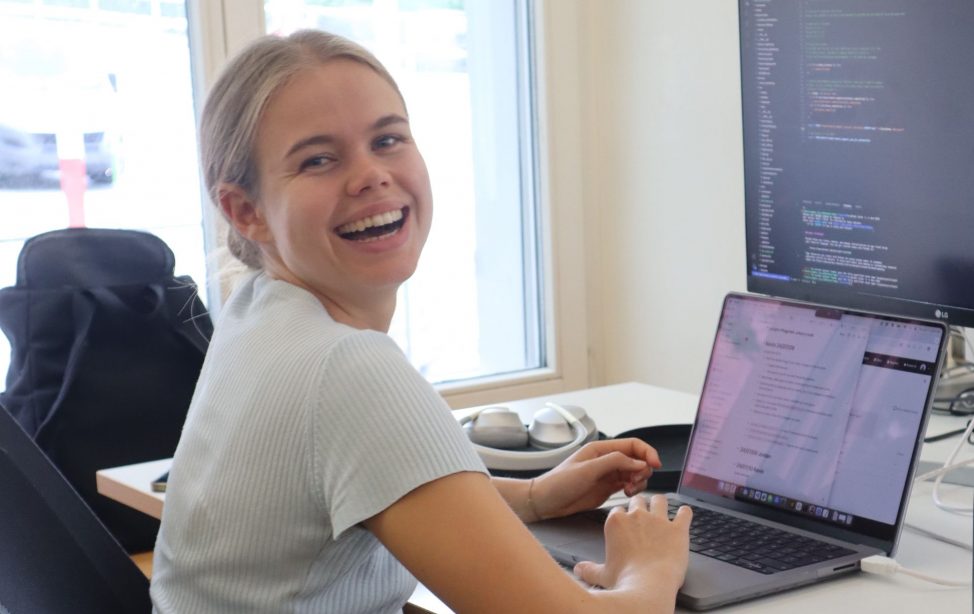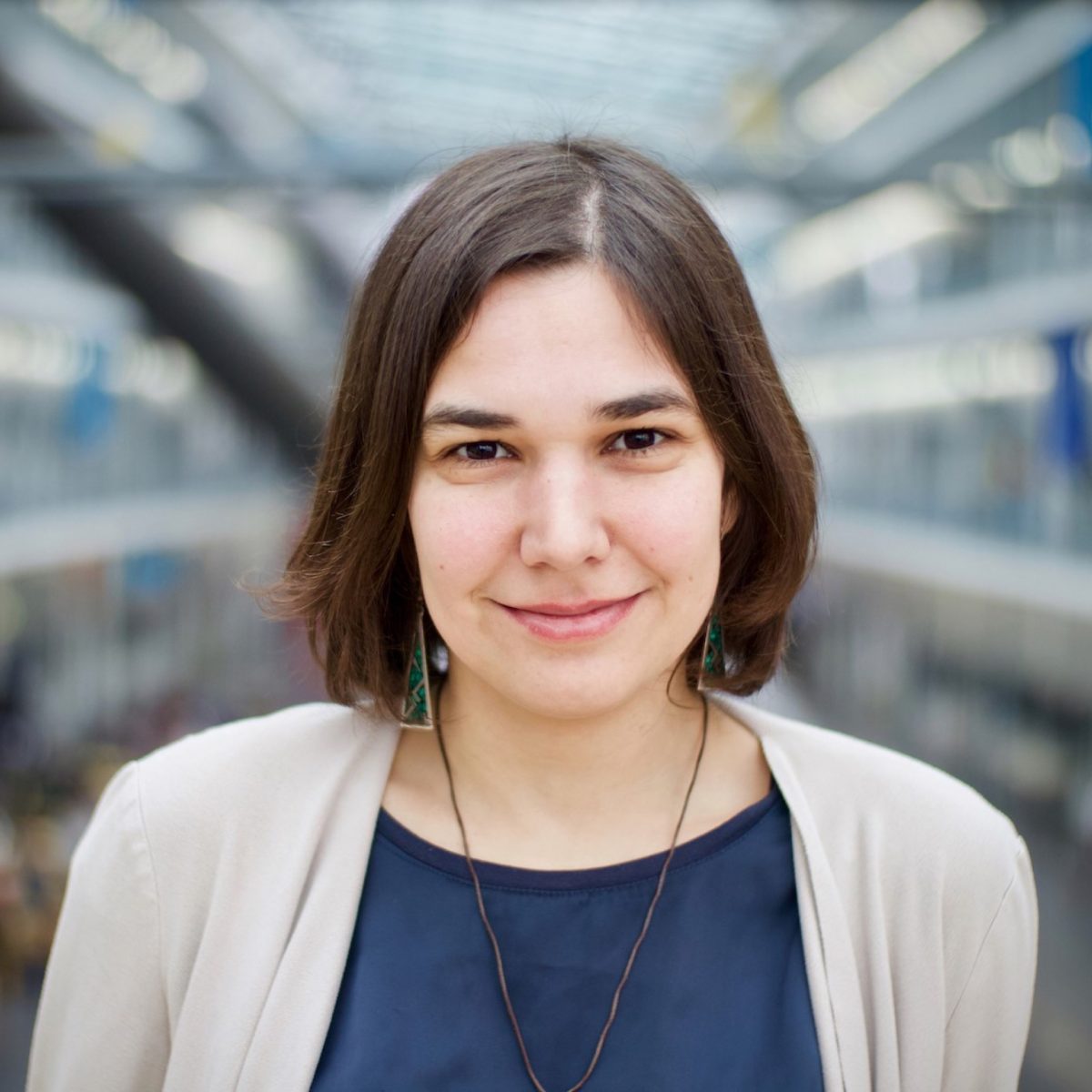
TUM Alumni Mariana Avezum is doing her doctorate in Applied Software Engineering at TUM's Department of Informatics in Garching. Her research is focused on Urban Mobility (Image: Florian Bodlée).
In 2014, Mariana Avezum completed her Bachelor’s degree and in 2017 the Master’s. Since then she has been doing her doctorate in Applied Software Engineering at TUM’s Department of Informatics in Garching. Today she teaches herself and always advises her students to attach great importance to application and practical experience. “It’s very important to me that what I’m working on actually benefits people”, she says. Also her own always application-oriented research at TUM was and is guided by this motto.
Mobility of the future
Already during her Bachelor’s degree, Mariana Avezum dealt with the optimisation of traffic flow, a topic that is very close to her heart due to the development of her hometown of São Paulo into a megacity. In 2013, she went to Singapore for her Bachelor’s thesis at TUM Create, a joint research project of TUM and the Nanyang Technological University, to research transportation systems for the cities of the future. In 2015, when she was researching a topic for her Master’s thesis and, rather coincidentally, came across the competition for contributions to the Hyperloop high-speed train launched by Elon Musk, she was immediately thrilled.
I knew that TUM would bring me together with the right experts and sponsors.
On target at high speed
The fact that the Hyperloop is a mechanical engineering project, unrelated to her specialist field, was an emotional challenge for Mariana Avezum. Yet she did not lose her courage. “I knew that TUM would bring me together with the right experts and sponsors”, she says. TUM and its industrial partner Airbus financed the project, and an interdisciplinary and international team of students from the Scientific Association for Rocket Technology and Space Travel (WARR) provided advice and support. Just two years later, at the beginning of 2017, she had the transport cabin developed by her and the WARR Hyperloop team race through the test tube on the SpaceX premises in Los Angeles – and promptly won the main prize for the fastest capsule cabin. “Even today, it gives me goose bumps when I think back”, says Mariana Avezum.
Since 2017, Mariana Avezum has also been doing her doctorate on Urban Mobility – one of the future’s key issues. She uses software systems to illustrate the significant links between air pollution and traffic volumes. Her work clearly shows how useful it would be to switch to car-pooling or completely move away from the conventional model of owning a car and towards a more multimodal transport, i.e. to use different modes of transport such as electric cars, bicycles and trains. Unfortunately, however, her influence here is very limited because the actual application and implementation of her solutions for efficient and clean mobility are not up to her but to society. “The rethinking must take place in people’s minds”, she says. After her doctorate she might set up her own company, in order to drive this change. “That’s my big entrepreneurial dream.”
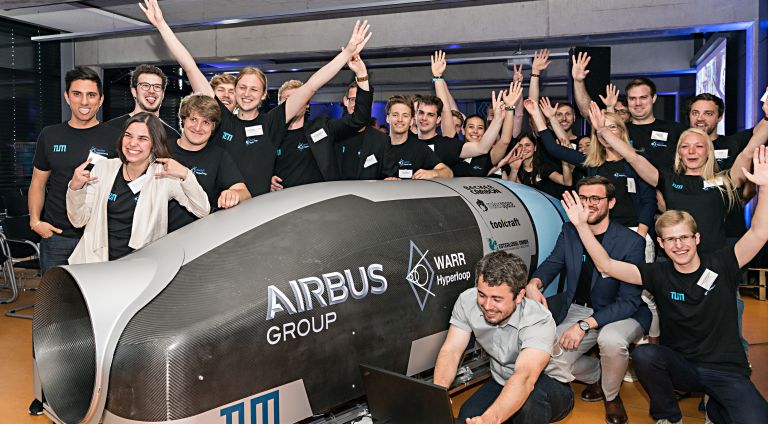
The super fast train of the future, also called Hyperloop. Hyperloop team with Mariana Avezum as Project Leader (Image: Uli Benz/TUM)
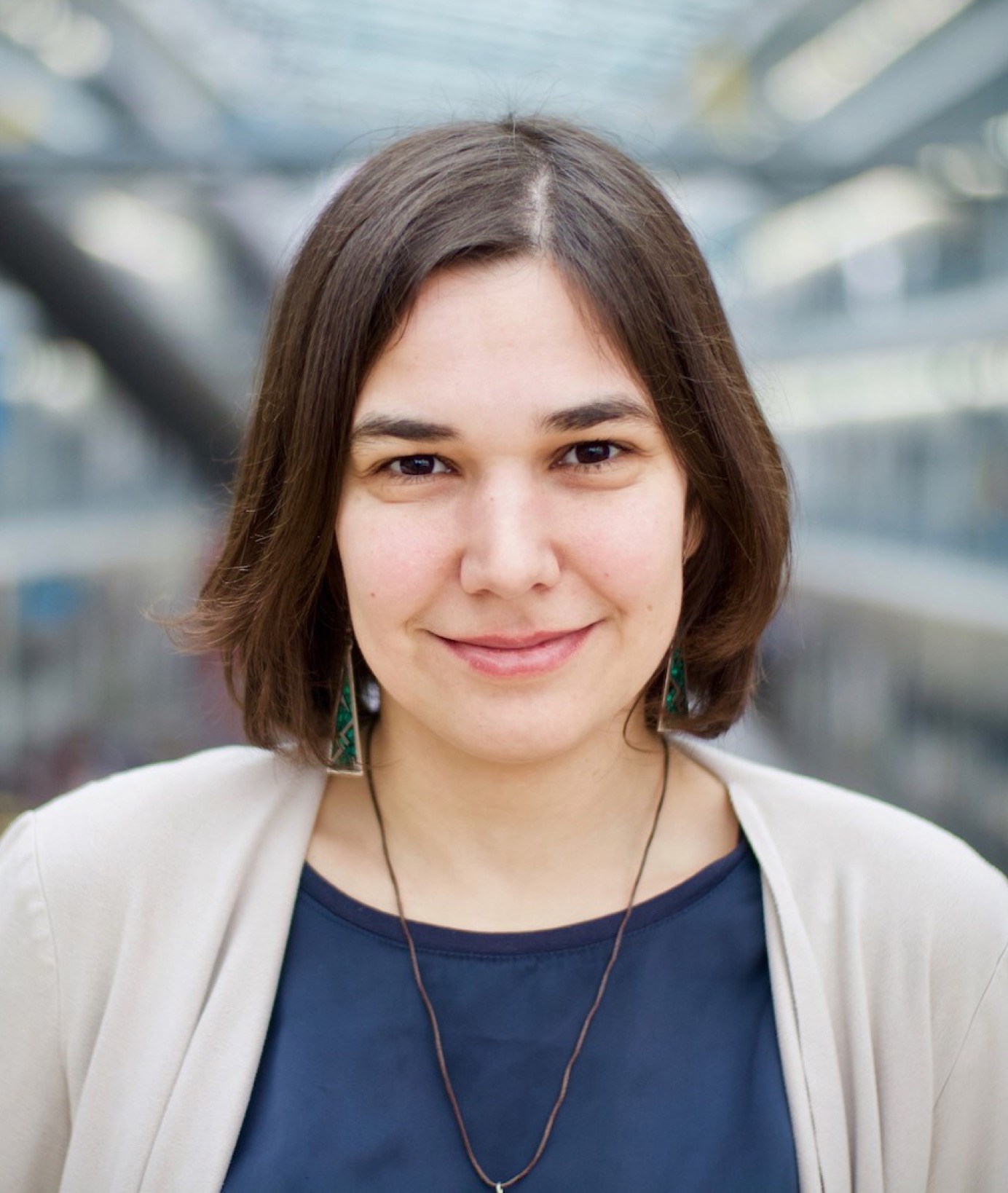
Mariana Avezum (Image: Florian Bodlée).
Bachelor Informatics 2014, Master 2017
Mariana Avezum attended school in Brazil and went to the USA for an exchange year. She came to Munich to study at TUM. In 2014 she completed her Bachelor’s degree in Informatics, followed by a Master’s degree in 2017. Now she is doing her doctorate at TUM’s Department of Informatics.
Since her Bachelor’s degree, Mariana Avezum has been researching a topic that is particularly close to her heart. Whether as part of the TUM Create research project in Singapore or at the Beijing Institute of Technology China – her focus is on Smart and Shared Mobility, the optimization of urban traffic while simultaneously reducing environmental pollution.
Mariana Avezum loves practical application and the challenge – also and especially in areas in which she has no experience at all. Because, she says, this is the only way to learn. With this attitude she has acquired knowledge ranging from iOS and Virtual Reality app development to drone based person recognition.
She quit her job as a software developer at Intel Germany in order to venture into new territory for her Master’s thesis: the development of a transport cabin that transports people at almost the speed of sound. She founded and led the TUM Hyperloop team until January 2017, which won first place in the SpaceX Hyperloop Pod Competition four times in a row with its cabin prototypes. The WARR Hyperloop was also awarded the Karl Max von Bauernfeind Medal of TUM and the VisionAward Talents.
